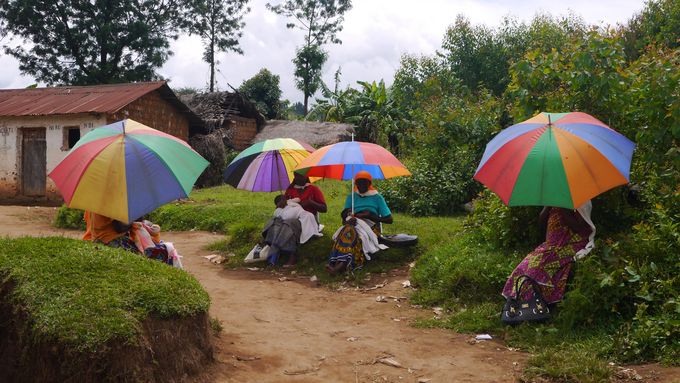More than a Third of Heat Deaths Are Linked to Climate Change
04.06.2021
Between 1991 and 2018, more than a third of all deaths in which heat played a role were attributable to human-induced global warming, according to a new study in the Nature Climate Change journal. The study, the largest of its kind, was led by the London School of Hygiene & Tropical Medicine and the University of Bern with partners including Swiss TPH.

The planet has already warmed one degree Celsius over preindustrial times, and much more warming is predicted. Photo credit: Joelle Schwarz, Burundi 2014
Global warming affects our health, from direct impacts such as wildfires and extreme weather, to changes in the spread of vector-borne diseases. Another striking affect is the increase in mortality and morbidity associated with heat.
Scenarios of future climate conditions predict a considerable rise in average temperatures with extreme events, such as heatwaves, if global emissions of greenhouse gases are not brought under control. However, no research has been conducted into what extent these events have already occurred in recent decades until now.
In a new study by the London School of Hygiene & Tropical Medicine (LSHTM) and the University of Bern with support from Swiss TPH, researchers used data from 732 locations in 43 countries around the world to show for the first time the actual contribution of man-made climate change in increasing mortality risks due to heat.
Low- and middle-income countries, despite minimal emissions, are most affected
70 researchers used data from major projects in the fields of epidemiology and climate modeling and found that heat-related deaths in warm seasons increased due to climate change by an average of 37%, in a range of a 20% increase to 76%. The study was published in the journal Nature Climate Change.
“The differences in mortality between the places occurred due to a variety of complex factors such as access to health care as well as architecture, urban density and lifestyle,” said Martina Ragettli, Senior Scientific Collaborator at Swiss TPH. “We found that in North America and East Asia, there was a smaller proportion of climate-related deaths, while some Central and South American nations saw a greater than 70% proportion of heat deaths attributable to warming.”
Strong policy needed to reduce further warming
While on average over a third of heat-related deaths are due to human-induced climate change, impact varies across regions. Climate-related heat casualties range from a few dozen to several hundred deaths each year per city, depending on the local changes in climate and the vulnerability of the population. "We expect the proportion of heat-related deaths to continue to grow if we don't do something about climate change or adapt,” said Dr. Ana M. Vicedo-Cabrera, first author of the study. “So far, the average global temperature has only increased by about 1°C, which is a fraction of what we could face if emissions continue to grow unchecked."
The findings provide additional evidence of the necessity to adopt strong mitigation policies to reduce future warming, as well as the need to implement climate-related interventions to protect populations from the adverse consequences of heat exposure.
“This is the largest detection and attribution study on current health risks of climate change,” said Antonio Gasparrini from LSHTM, senior author of the study. “The message is clear: climate change will not just have devastating impacts in the future, but every continent is already experiencing the dire consequences of human activities on our planet. We must act now.”
Environmental Exposures and Health at Swiss TPH
Researchers at Swiss TPH develop and integrate novel tools and methods to investigate the health effects of a wide range of environmental exposures. Current studies in relation to heat including the assessment of factors affecting the vulnerability to heat. On behalf of the Federal Office of Public Health, Swiss TPH recently created a heat-health toolkit, which is aimed at professionals and authorities who want to help protect the population from heat.
Stay connected
Subscribe to our newsletter and get all the latest research news, project updates, course and event listings from Swiss TPH.
